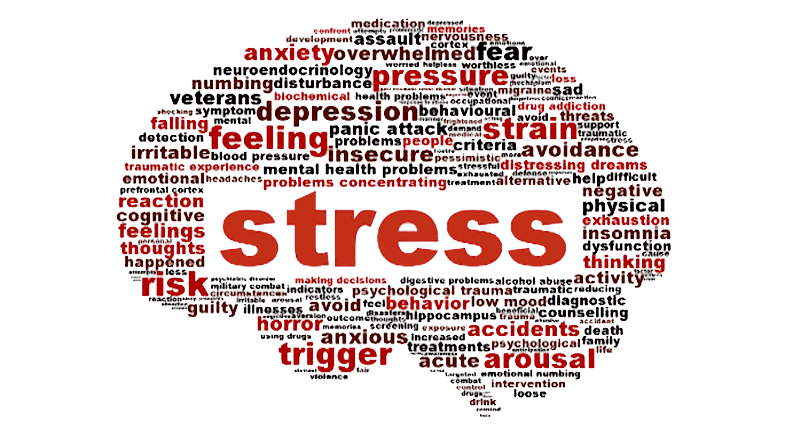Stress has become an almost unavoidable part of modern life. Whether it’s work pressure, financial worries, relationship conflicts, or health concerns, everyone experiences stress at some point. While short-term stress can actually help us respond to challenges more effectively, chronic or long-term stress can take a serious toll on your physical health.
Understanding the link between stress and the body is critical for early intervention and effective management. This blog explores how stress affects your body, the signs to look out for, and steps you can take to reduce its impact.
What Is Stress?
Stress is the body’s natural response to any situation that demands attention, change, or action. It triggers the release of hormones like cortisol and adrenaline, which prepare the body for a “fight-or-flight” response. While this reaction can be life-saving in emergency situations, continuous activation of this system can damage vital organs and functions over time.
Physical Effects of Chronic Stress
1. Cardiovascular Issues
Long-term stress can lead to:
- High blood pressure
- Increased heart rate
- Higher risk of heart attacks and strokes
Stress hormones cause blood vessels to constrict and the heart to beat faster. Over time, this puts a strain on the cardiovascular system, increasing the risk of heart disease.
2. Weakened Immune System
Prolonged stress suppresses immune function, making you:
- More vulnerable to infections like colds and flu
- Slower to recover from illnesses and wounds
- Prone to autoimmune conditions
3. Digestive Problems
Stress affects the gut in several ways, including:
- Indigestion
- Heartburn or acid reflux
- Irritable Bowel Syndrome (IBS)
- Appetite changes (leading to weight gain or loss)
The brain and gut are closely connected, so emotional stress can directly impact digestive health.
4. Musculoskeletal Pain
Tension from stress often leads to:
- Tight neck and shoulders
- Frequent headaches or migraines
- Lower back pain
Stress-related tension can also worsen conditions like arthritis and fibromyalgia.
5. Respiratory Complications
People with asthma or other breathing disorders may experience worsening symptoms under stress. It can also trigger shortness of breath or panic attacks in otherwise healthy individuals.
6. Skin Problems
Stress can aggravate:
- Acne
- Eczema
- Psoriasis
- Hair loss
This happens due to hormonal imbalance and increased inflammation in the body.


Common Signs of Chronic Stress
If you’re experiencing any of the following on a regular basis, stress may be taking a toll on your body:
- Frequent fatigue or insomnia
- Muscle tension or body aches
- Headaches or migraines
- Changes in appetite or weight
- Digestive issues like constipation or diarrhea
- Frequent illnesses or infections
- Skin breakouts or rashes
Long-Term Health Risks
Unmanaged stress doesn’t just cause discomfort—it can lead to serious health conditions over time, including:
- Hypertension (high blood pressure)
- Heart disease
- Diabetes
- Depression and anxiety
- Substance abuse disorders
- Infertility
Recognizing stress as a legitimate health concern is essential for maintaining both physical and emotional well-being.
How to Manage Stress Effectively
1. Exercise Regularly
Physical activity releases endorphins, which improve mood and reduce cortisol levels. Aim for at least 30 minutes of brisk walking, yoga, or cycling most days of the week.
2. Practice Mindfulness & Relaxation
Techniques like meditation, deep breathing, and progressive muscle relaxation can significantly reduce stress responses.
3. Maintain a Healthy Diet
Avoid excessive sugar, caffeine, and processed foods. Include fruits, vegetables, whole grains, and omega-3-rich foods to support brain and body health.
4. Get Enough Sleep
Quality sleep is crucial for stress recovery. Stick to a consistent bedtime and reduce screen time before bed.
5. Stay Connected
Spending time with friends and family can offer emotional support and a sense of belonging, reducing stress levels.
6. Seek Professional Help
If stress becomes overwhelming, consult a general physician, therapist, or mental health counselor. Cognitive-behavioral therapy (CBT) and medication may be recommended in severe cases.


When to See a Doctor
You should consult a healthcare provider if:
- Your physical symptoms persist despite lifestyle changes
- You experience frequent panic attacks or depressive thoughts
- Your stress begins to affect daily functioning or relationships
Early intervention can prevent complications and improve quality of life.
Conclusion
Stress may start in the mind, but it manifests deeply in the body. From digestive issues and skin breakouts to serious conditions like hypertension and heart disease, the impact of unmanaged stress is widespread. By learning to recognize the signs early and adopting effective stress management techniques, you can protect both your physical and mental health.

